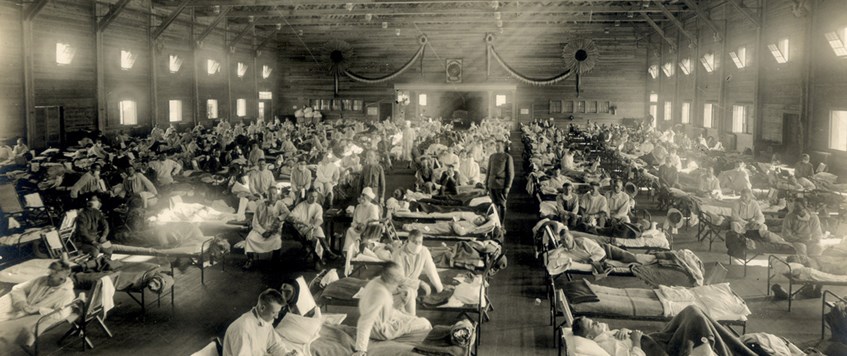
The 1918 influenza pandemic, colloquially known as Spanish flu, was a deadly influenza pandemic that infected 500 million people around the world. Probably 50 million, and possibly as high as 100 million (three to five percent of Earth's population at the time) died, making it one of the deadliest pandemics in human history.
The German March Offensive in 1918 took place in the middle of the pandemic and the loss of soldiers to flu weakened the German attack. On the British side it weakened the defence.
Jane will explain the epidemiology of the pandemic and discuss its effect on the progress of the war effort in 1918, especially from the German point of view.
Members of The Western Front Association and non-members are equally welcome. We ask for a modest £3 donation on the door. This includes tea, coffee and biscuits at the break (before the Q&A session with the speaker). There is a book raffle and books about the Great War are usually available for sale.
New visitors will be assured of a welcoming and friendly atmosphere among a group of like-minded enthusiasts.
The meeting starts at 7.45pm. Doors open at 7:15pm. Come early to browse the books for sale and to chat about the Great War with other attendees.
The picture shows soldiers from Fort Riley Kansas, ill with Spanish flu at a hospital ward at Camp Funston. Otis Historical Archives Nat'l Museum of Health & Medicine - NCP 1603, CC BY 2.0, https://commons.wikimedia.org/w/index.php?curid=25513204





